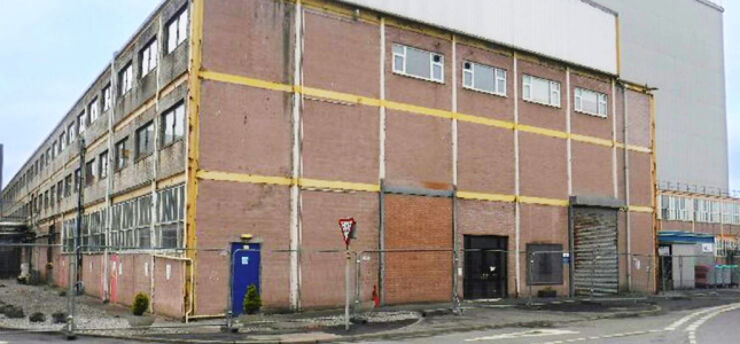
Decommissioning part of the UK’s first plutonium plant is serving as a valuable pilot project for a novel NEC-based ‘outcome-based contracting’ (OBC) approach. The success of the project looks set to accelerate delivery of the UK’s multi-billion NEC-procured nuclear decommissioning programme over the next 120 years.
The UK’s Nuclear Decommissioning Authority (NDA) is using NEC3 contracts to deliver most of its £3 billion a year decommissioning work at 17 UK sites, £2 billion of which is spent at Sellafield. The OBC approach was developed by Sellafield Ltd, a publicly owned ‘site licence company’ responsible for safe remediation of the Sellafield nuclear site in Cumbria on behalf of NDA.
The £7 million OBC pilot project is for remediation of the Windscale Pile 1 east blower house. Completed in 1950, Pile 1 separated plutonium from spent nuclear fuel in an air-cooled graphite reactor but was shut down following a fire in 1957. Since then the building has served as office space. Accelerated demolition of the facility creates value for Sellafield Ltd by reducing associated future care and maintenance burdens as well as releasing the land for potential re-use in a heavily congested area of the site.
The pilot project was let in June 2017 through Sellafield’s NEC-based decommissioning delivery partnership framework to Cumbria Nuclear Solutions Ltd (CNSL), an alliance of James Fisher Nuclear, React Engineering, Shepley Engineers, Jacobs Stobbarts, Westinghouse Electric Company and WYG. Shepley is the lead contractor on the project and final outcome completion is scheduled for September 2019.
Defined outcomes
The project was let under an NEC3 Engineering and Construction Contract (ECC) Option A (priced contract with activity schedule) amended with 17 Z clauses for use as an OBC, with payments made on the achievement of outcomes defined in the works information. In all other respects the contract was unchanged from the standard NEC wording.
According to John Grace, OBC portfolio manager, ‘The outcomes are driven by benefit to the customer rather than resource or monetary value. As such OBC incentivises the supply chain to deliver real business value to us rather than completing an amount of work. Ultimately it will enable us to afford accelerated remediation, meaning we can retire the care and maintenance burden for radioactive buildings earlier than originally planned.’
Grace says it was essential that transferring the risk of achieving outcomes was done in a way which was fair and transparent, as making the supply chain accountable in this way was a major cultural and contractual shift from Sellafield’s ‘business as usual’ approach. ‘A substantial amount of time was therefore invested in early engagement and consultation with contractors to discuss the contract, which led to a smooth tender process and acceptance of the contract terms.’
The pilot project is being carried out in two distinct phases with a break in between. Phase 1 was solely for outcome 1, which was to design an acceptable remediation solution. This was delivered on time in October 2017 and led to the contractor receiving an order to proceed to phase 2.
Outcome 2, the retiring of care and maintenance burdens, was completed ahead of schedule in March 2018. The remaining outcomes, including reducing radiation risk, removing demolition waste and achieving ‘final end state’ are on course, with final outcome completion expected in September 2019.
Vital component
Grace concludes, ‘The use of NEC in an innovative and highly collaborative way has proved to be a vital component in the success of this pilot project. Risks were identified and mitigated collaboratively during phase 1 and costs were agreed on a fully open-book basis.
‘The NEC requirement to work in a “spirit of mutual trust and co-operation” led to a high degree of mutual trust and openness being developed, with co-location of the client and integrated project team from phase 1 onwards. Subsequent risks were dealt with quickly through effective use of NEC early warnings and risk reduction meetings.
‘The learning has been so positive that other significantly larger and higher value remediation projects are now being prepared using the same contract model. The OBC approach, enabled by the NEC form of contract, is therefore revolutionising the way Sellafield Ltd delivers its multi-billion-pound portfolio of remediation works to the benefit of all stakeholders.’
In recognition of its pioneering work, Sellafield Ltd won the global NEC Contract Innovation through Additional Clauses Award in 2018.




